'I left to help my dad'
Valentina Parra
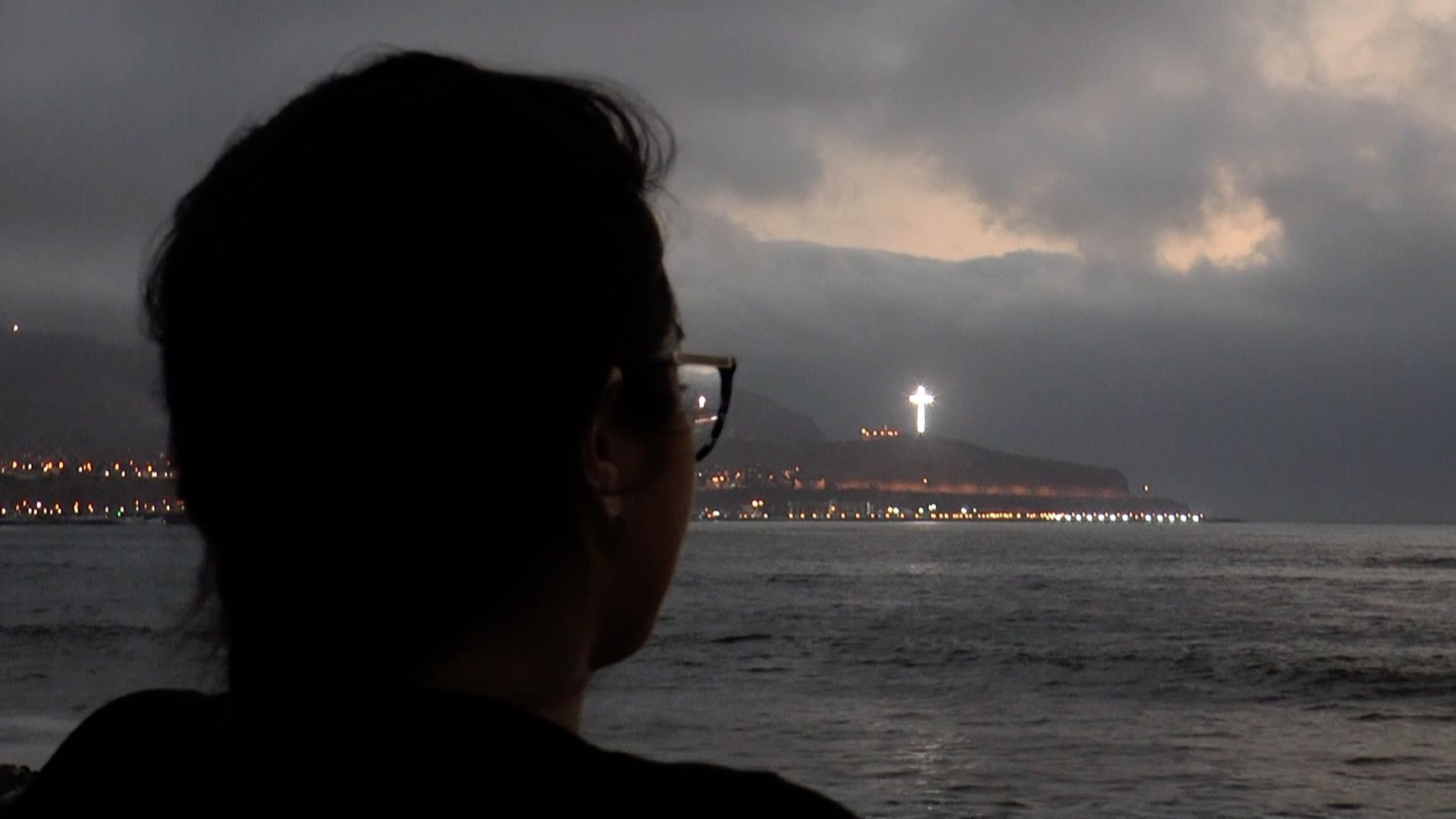
Valentina Parra was 20 years old when she left Venezuela. Like many others, she felt that she had no other option.
Medicine shortages in her home country meant that her father couldn’t afford the medication he needed to treat his life-threatening illness.
As the lack of medication began to take a toll on her dad, Valentina decided to get the money.
She knew, however, that she wasn’t going to be able to obtain it in Venezuela.
“I felt like my heart was being ripped out”, she says remembering the last time she saw her parents, “I said goodbye to my dad, and I gave my keys to my mom and told her ‘at the moment that God wants it we will be together again’”
Valentina didn't know that would be the last time she would ever see her father.
Valentina was born in the city of San Diego, located two hours away from Caracas, in 1998. She was only a few months old when Hugo Chavez was elected president. Venezuela would never be the same.
Valentina left her hometown shortly after finishing high school. She wanted to become a veterinarian and was admitted in Venezuela’s Central University (Universidad Central de Venezuela). The veterinarian school was based in Maracay, less than an hour away from her parents’ home in San Diego.
In her new town, she rented a small flat near campus, where she lived on her own, “I just dedicated myself to study" she says remembering her uni days.
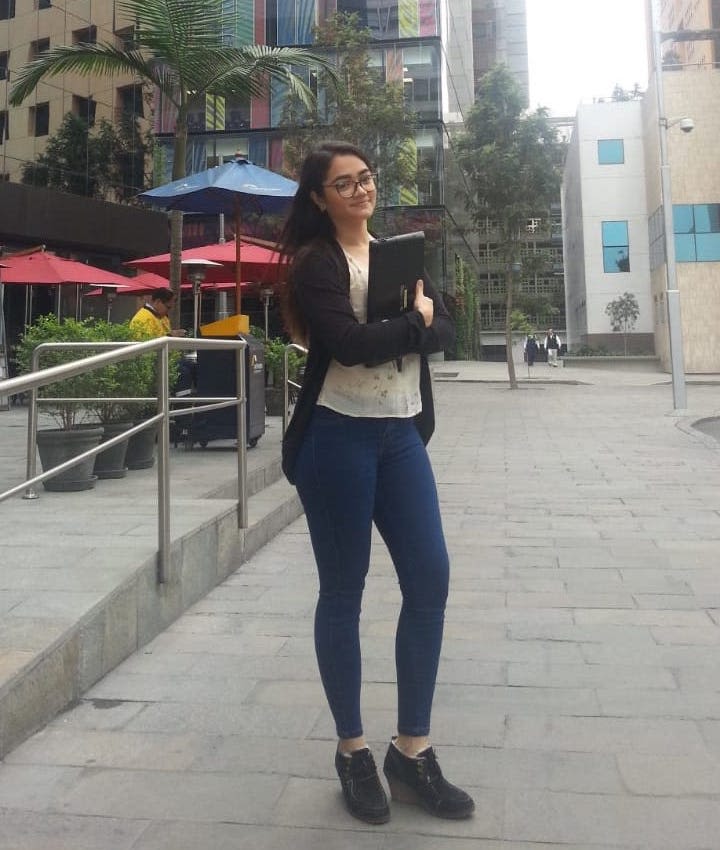
Valentina during her university days.
For the next five years, she was supposed to study to become a veterinarian. But suddenly, everything changed.
Valentina’s father fell seriously ill and she had to leave university to take care of him, "I went from being a student to taking care of my dad 24/7".
With university on hold, she acted as her father’s personal carer for the best part of a year. However, the crisis had slowly begun to have an impact on her father’s condition as Valentina and her family stopped being able to obtain the vital medication he needed.
Medication shortages are common around the country and make it nearly impossible for people to access even the most basic medicines. In spite of that, those with enough money could obtain them at substantially high prices in the black market.
Without medication, Valentina’s father’s condition began to deteriorate. “I saw him suffer when his treatments couldn’t be completed”, she says quite melancholically, “I started noticing that he was suffering because of his illness”.
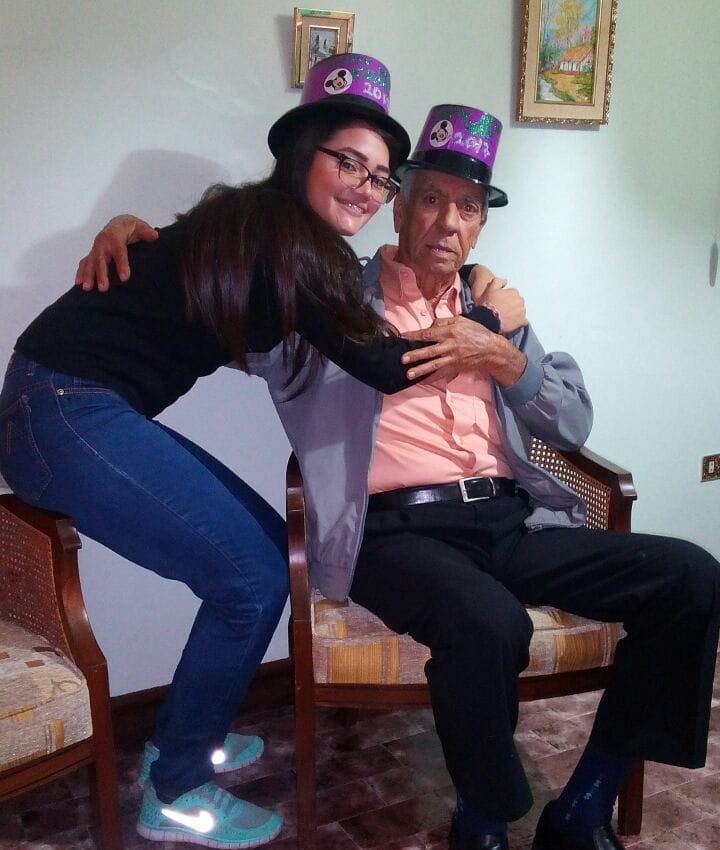
Valentina and her dad in 2017.
Valentina had to watch him suffer every day and couldn't bear it any longer. She had decided to get the money herself. She had decided to leave the country.
“(Remembering leaving Venezuela) stirs up my feelings and makes me want to cry. It wasn’t easy. To come here (to Peru), I left my house and grabbed my three things, said goodbye to my mom and said goodbye to my dad.
“I gave my keys to my mom and told her ‘at the moment that God wants it we will be together again’. It was horrible".
One year after leaving university, Valentina was leaving Venezuela.

Valentina during her university days.
Valentina during her university days.

Valentina and her dad in 2017.
Valentina and her dad in 2017.
Valentina travelled on a bus for several days and arrived in Lima in June 2018.
"The journey (to Peru) was really hard, very emotive", she says, "I had no way of getting in touch with my mom to tell her where I was because there was no signal, there was nothing."
She was on her own now; in an unknown country.
“My first days in Lima?", she says, "Honestly, I just cried. I was in shock."
She had arranged to stay in a place with some fellow Venezuelans. But she was homesick and overwhelmed by the unfamiliar city.
“It wasn’t an environment I was used to. I left the house where I was living and for some reason, I thought that I would find what I used to see in front of my house (in Venezuela)."
"And leaving the house was really complicated for me. I got lost hundreds of times and hundreds of times I went back home crying."
Despite struggling to adapt, Valentina began to look for a job. But these obstacles would continue to stand on her way.
She remembers one occasion in which she missed out on an interview after getting lost in the city.
"This old person told me 'lady you're lost, where are you going' and I told them 'I'm going to an interview in this place', and then he told me 'No, that's located in another district' and that happened hundreds of times to me. I was lost."
“My first days in Lima? Honestly, I just cried. I was in shock."
As the weeks went by, Valentina still hadn't found a job.
"It is hard to get a job", she says, "most of the jobs aren't actually what they have been advertised and they were related to areas I wasn't used to or didn't have experience in".
As she kept applying for jobs, Valentina soon realized that earning money wouldn't be as simple as she would have thought. Venezuelans, as she explained, arrive in Lima with dozens of debts and keep owing people money as they struggle to find a job, "it makes it more complicated".
After a month of interviews, Valentina finally got a job. But she couldn't help her father anymore.
He had passed away, and everything was changing once again.
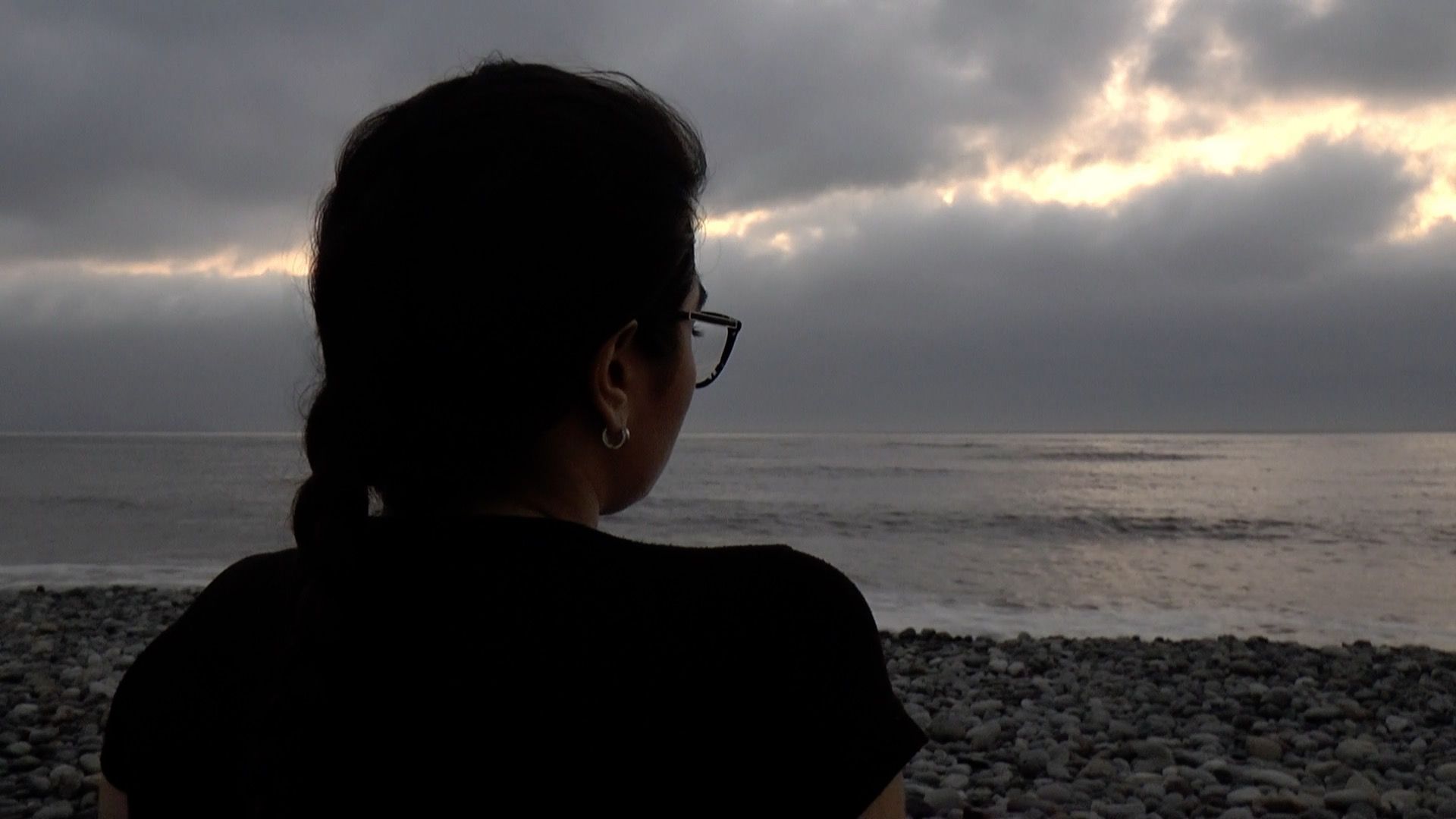
"My expectation was to find a job as soon as possible and help my dad. I got a job, however, my dad died during that period of time"
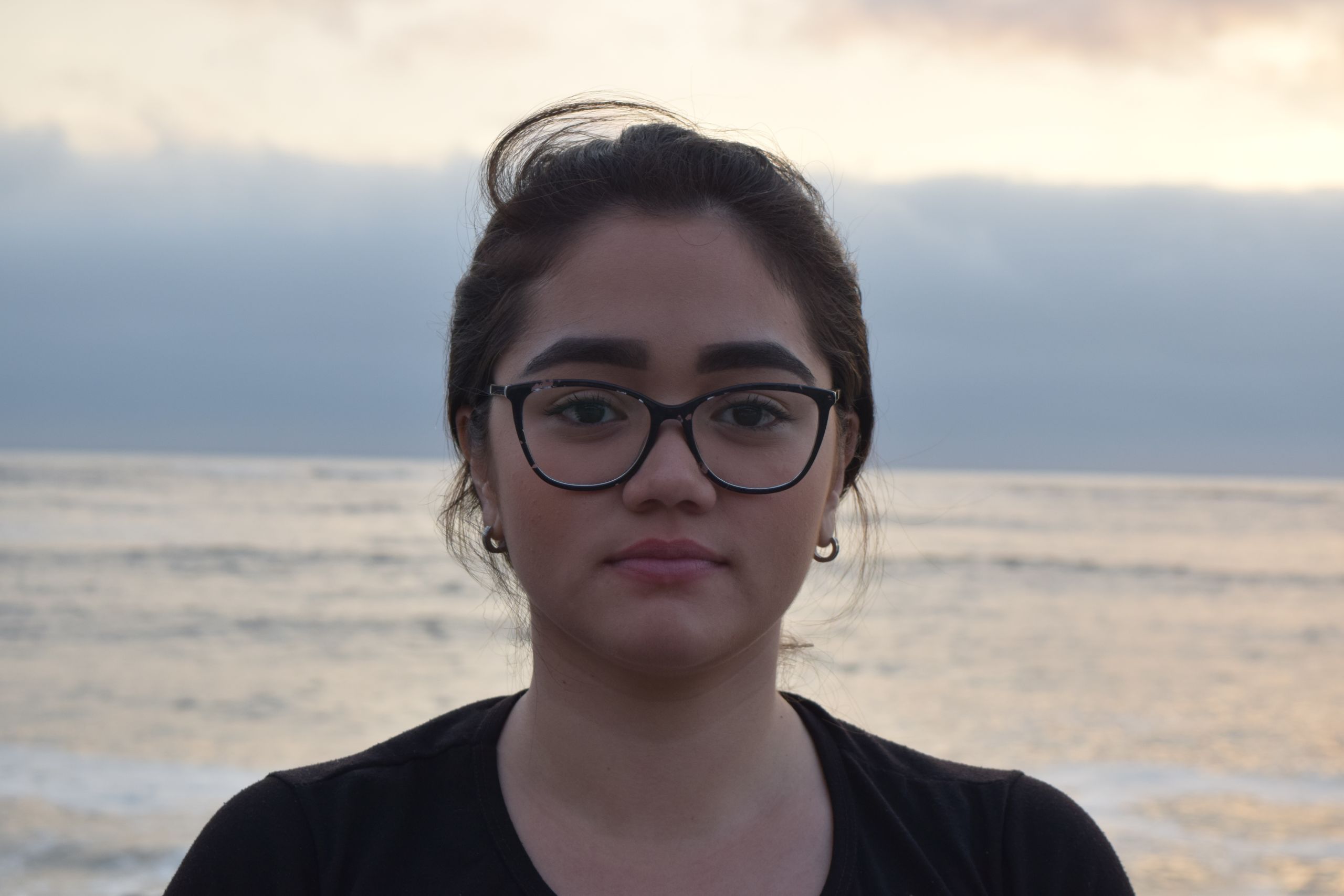
Valentina left for her father. Months after his death, she is still in Peru.
"I've got nothing left but my mom in Venezuela", she says, "and she will come here."
After some turbulent years, Valentina finally found some stability. These past months, she has been working as an events coordinator on weekdays and as a waiter on the weekends.
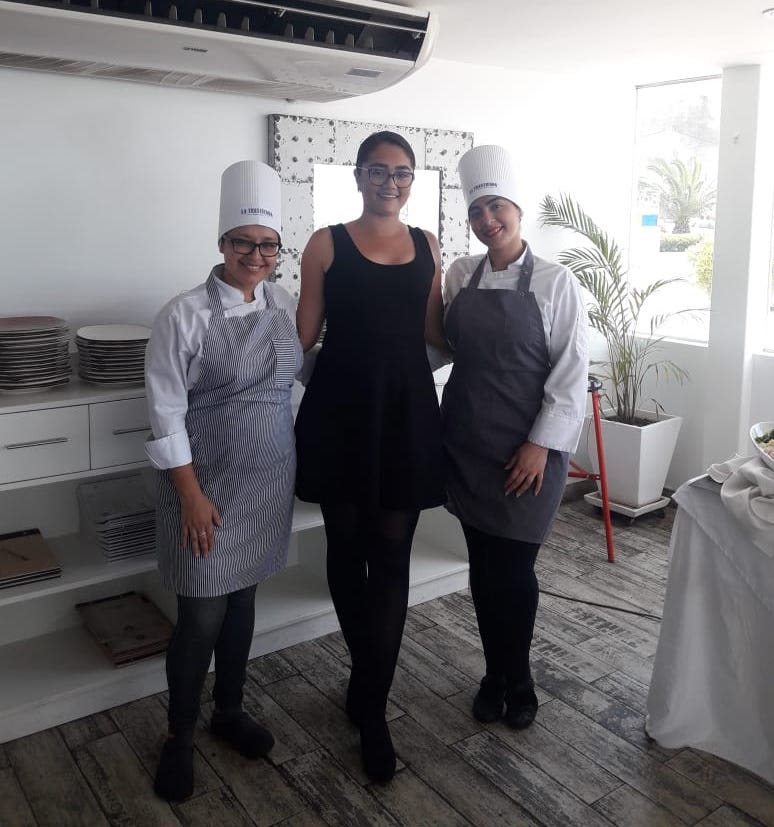
Valentina at her new job as a waitress.
Valentina at her new job as a waitress.
Although she still struggles sometimes and even prays not to get sick, she is now thinking about staying in Peru. She wants to study part-time at a university to finish her degree and her mom is set to join her in Lima in a couple of months. She has made a new life for herself.
She can see a future in Peru, something she can't say about Venezuela.
In spite of that, Valentina would like to return to her home country one day, most importantly, for her mother.
"I want to go back to Venezuela once the whole situation gives way, gets fixed and take my mom to the place where she was born, and for her to be at peace."
"For me, it's easy to adapt but, for an older person, it isn't."
"I want to take my mom to the place where she was born."
"I want to take my mom to the place where she was born."
Valentina understands the struggles of the Venezuelan migrant. Like her, thousands fight every day to rebuild their lives away from their home country.
“It breaks my soul, it makes me feel bad; I cry. To think that my situation might be nothing compared to that of other Venezuelans, that come here walking out of necessity -we all come here for necessity really-", she says quite nostalgically.
“I think it’s really unfair on the children, older people and professionals because as Venezuelans we made a life for ourselves in Venezuela, we worked hard for our degrees, our houses, our values. I feel like it’s really unfair and I feel powerless. I feel powerless.”
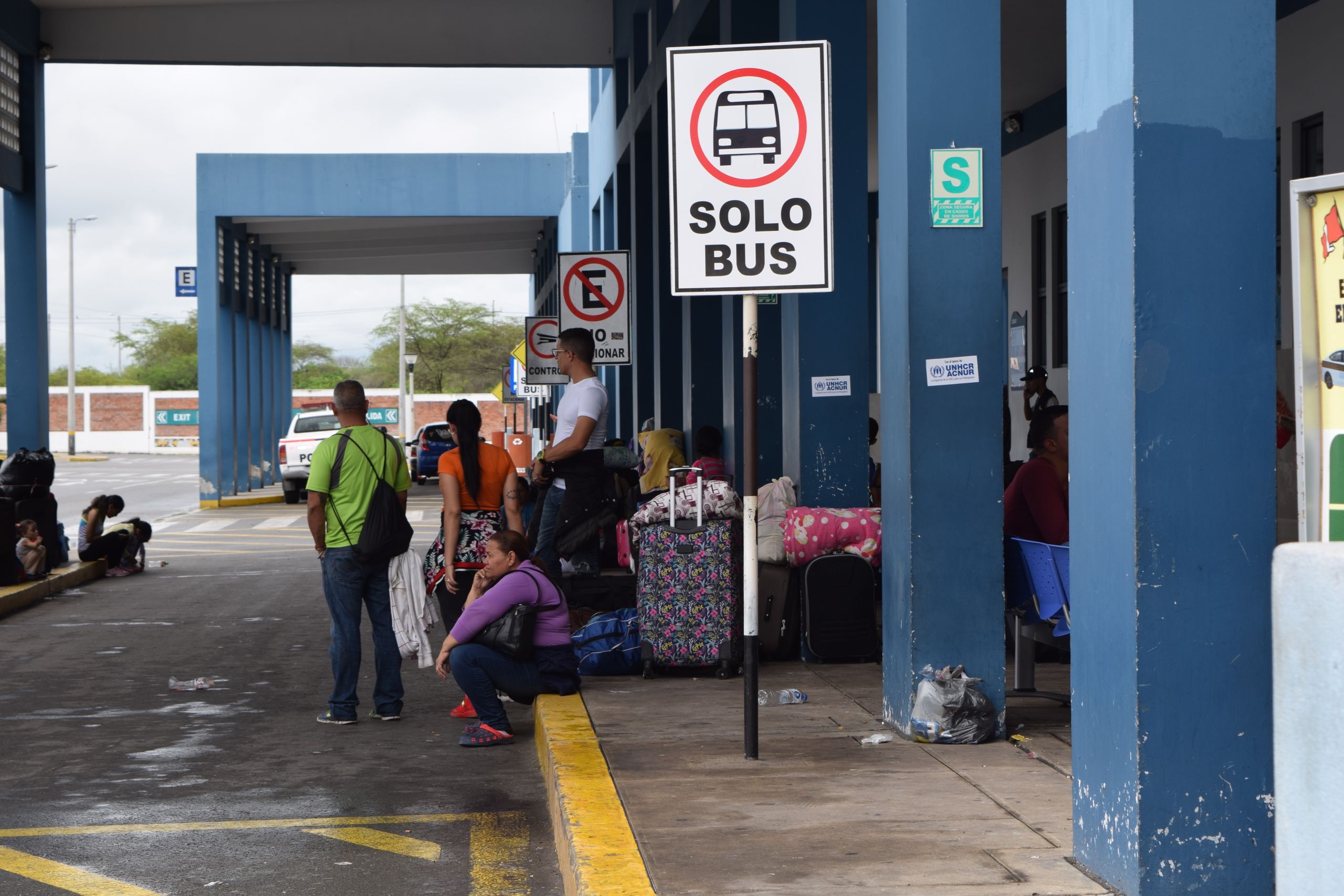
Venezuelan immigrants waiting at the Border Emergency Care Center.
Venezuelan immigrants waiting at the Border Emergency Care Center.
Less than a year ago, Valentina left her country because she had no other option. Until this day, thousands continue to leave as they find themselves in the same position.
And like Valentina said, there's something really unfair about losing everything without being responsible for anything.

